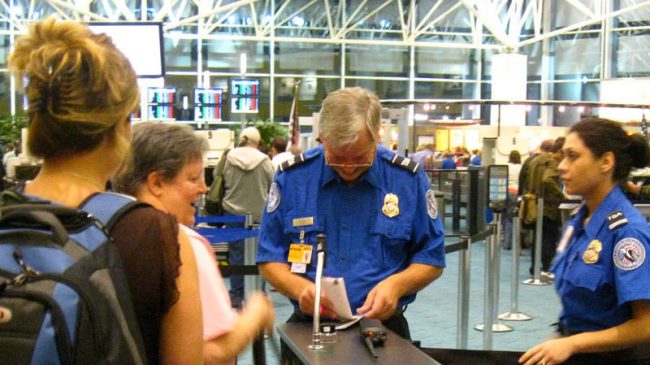Last month the TSA issued its long-awaited guidelines to implement the provisions of ATSA that allow all airports to request permission to opt out of TSA-provided passenger and baggage screening as of this November. Both TSA and House Aviation Subcommittee chairman John Mica keep repeating the estimate that 25% of all commercial airports may apply. But after reading the guidelines and listening to airport director comments, I’m not so sure.
First, the good news. In the guidelines, TSA acknowledges that its centralized hiring and training of screeners is a problem. Not only is it running a pilot program at Boston Logan to test a more decentralized approach, but it expects that such decisions will be made locally by opt-out airports. Secondly, it promises to give airport directors serious input into the process of selecting a screening contractor for their airport. And third, it is willing to let airports themselves be the security contractor (a model that has been tested over the past two years by the Jackson Hole, WY airport).
But as many airport directors have been quick to point out, the guidelines inadequately address their three most important concerns regarding potential improvements from opting out:
- Workload. TSA will still divvy up its screening staff budget among airports once a year, leaving the opt-out airports with the same dilemma they have today. With airline service increasing and decreasing throughout the year, only by coincidence will they have a good match between staff numbers and screening demand. Far better would be a new formula recomputed each month for all 450 airports. That would let the (more flexible) private contractors ramp-up or ramp-down their work forces, accordingly, which would give airports that opt out very tangible improvements in service.
- Liability. Under the Safety Act of 2002, companies providing “qualified anti-terrorism technologies” get limited liability protection. Since ours is a service economy, the same protection ought to be extended to companies providing anti-terrorism services, such as airport screening. If TSA cannot make this determination, it should ask Congress to explicitly do so to help make opt-out a viable program.
- Control. The opt-out program offers TSA the opportunity to put in place and gain experience with the European model of airport security, under which the implementation responsibility is delegated to each airport, under strong federal oversight. Under a revised opt-out model, the airport director would select the best security contractor (from a list of those meeting TSA standards), subject to final sign-off by the TSA’s Federal Security Director (FSD) for that airport. The screening contractor would then report to the airport director, just as do other airport security staff dealing with functions such as access and perimeter control. All such security functions would be under the regulatory supervision of the FSD.
Apart from (perhaps) the liability issues, these revisions appear to be within TSA’s purview in interpreting the opt-out language of the ATSA legislation. According to Airport Security Report (7-14-04), “TSA considers the program guidance a work-in-progress and will continue to release further directions on the program.” Airport directors favoring these suggestions should let TSA and their trade associations know.

